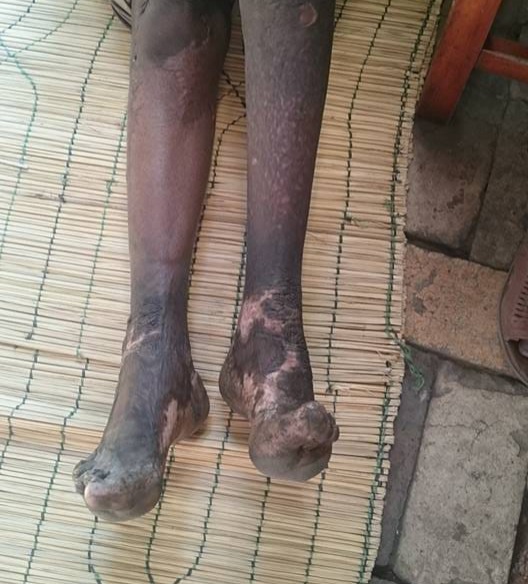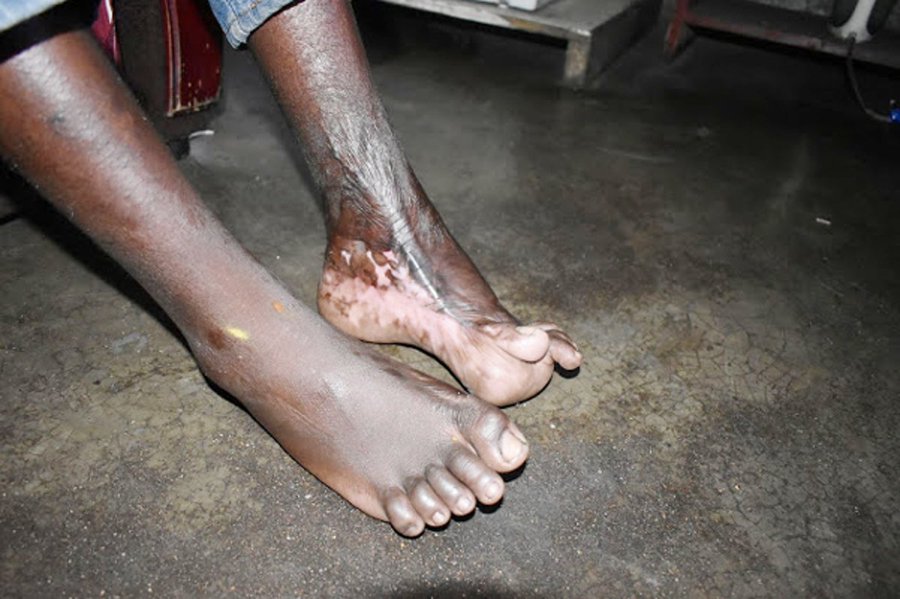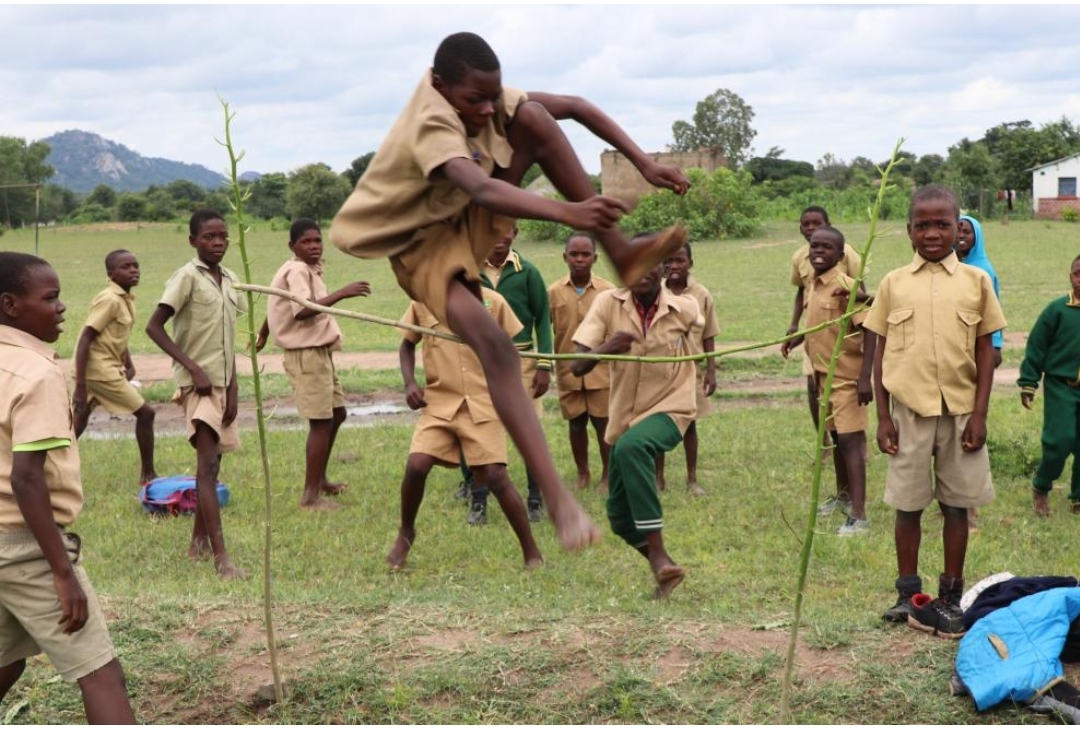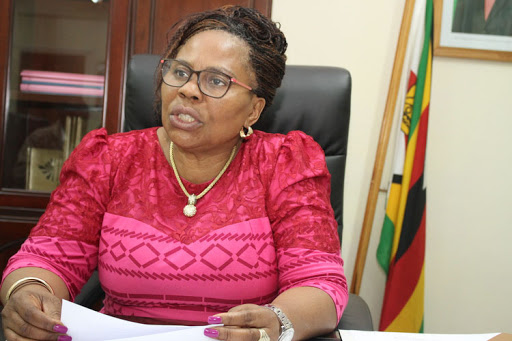BY CENTRE FOR NATURAL RESOURCES GOVERNANCE
Research has revealed significant evidence of the deleterious contribution of coal to climate change through combustion.
However, no investigations into life-changing disasters suffered by people in coal mining areas due to underground coal fires have been done.
Raging underground coal fires in and around Hwange town are endangering humans, leaving some with near-death experiences and permanent disabilities.
This report focuses on the adverse effects of underground coal seam fires and other environmental hazards on children in Hwange.
Reference is also made to fire victims outside the children’s category.
Some of the victims who are now adults were injured whilst young and had their future ruined by the permanent injuries, lengthy periods spent in hospitals and unending excruciating pain that has become a permanent experience in their lives, largely due to inadequate therapy they received.
The children who fall victim to the coal seam fires suffer a range of physical and psychological effects which include post-traumatic stress disorder (PTSD).
This report is inconclusive because not all cases were captured.
It is not an in-depth research on the effects of underground coal seam fires on children in Hwange.
Data was gathered alongside implementation of human rights interventions in Hwange by the Centre for Natural Resource Governance (CNRG).
The organisation had the privilege to visit some of the affected children in their homes.
Some of the survivors or their guardians consented to have their stories and pictures published.
For ethical reasons, some of the pictures could not be published in this report due to the gravity of the injuries.

There is scope for further research which could include visits to schools in and around Hwange to talk to school authorities on statistics of affected children, and assessments of how these tragedies have affected the school performance of the affected children.
This report is a call to action to the government of Zimbabwe and an invitation for dialogue among mining stakeholders in Hwange on reducing and bringing to an end these incidences.
There is also need to offer various forms of help to the affected children and their families and ensure they get equal opportunities in life.
Both the families and the children need psycho-social support to overcome the trauma they now live with.
Finally, the stories of these children should be told whenever the story of coal is discussed.
According to Global Forest Watch ‘most coal seam fires are ignited by human activity, usually in the process of coal mining or waste removal’
These fires can burn underground undetected for decades but can occasionally protrude to the surface with severe effects on flora and fauna.
According to Global Forest Watch, underground coal seam fires ‘cause the ground to become extremely hot and unstable, destroying roads and homes, as well as creating fiery sinkholes that swallow anything from cars to people.’
Underground coal seam fires are now prevalent in Hwange, throughout the concession owned by Hwange Colliery Company Limited (HCCL) where there are also human settlements for the mine labour.
Residents have noted that mine residue dumps found in Number 2 and 3 areas of HCCL are some of the most hazardous sites with raging underground coal seam fires.
It was noted that loose dry materials that land on hot coal dumps quickly ignite fires that spread to coal seams.
Fires travel underground from one coal seam to another and subsist in the ground for many years.
Removal of overburden during mining brings the fires close to the ground.
In some cases, the overburden gives in to the heat, causing the ground to collapse.
WHY CHILDREN?
Children, by their very nature love playing and having fun.
They are curious, experimental and adventurous.
They have limited knowledge of the life changing dangers that surround them in mining compounds.
Most of the children profiled in this report met their fate whilst playing with their peers.
For instance, the child attacked by a crocodile whilst swimming in an abandoned pit that became a pond was doing what any other child would do when they find plenty of water.
Unlike children in affluent suburbs who play in controlled environments, usually under the watch of an elderly person, children in mining areas play on their own.
Usually their parents have no clue as to where they spend their day playing or what they spend their time doing.
In most mining regions in Zimbabwe, environmental laws are poorly implemented, resulting in creation of death traps for children who often find joy in playing with abandoned equipment and chemicals or use open pits, sometimes with toxic substances, as swimming pools.
Lack of investment in recreational facilities by mining companies results in children playing in dangerous zones.
It is, therefore, important for mining companies to put in place policies that protect and safeguard children from physical danger.

Dangerous sites must be properly secured to ensure children do not gain access.
In places with underground fires such as Hwange, the company and the Environmental Management Agency have a duty to keep watch over these fires and warn the community accordingly.
Companies that dig and leave open pits must be heavily fined and banned from operating as they pose risks to unsuspecting children.
The Ministry of Health and Child Welfare also need to carry out inspections on the safety and wellbeing of children in mining zones and make policy recommendations to the government for tightening of laws to ensure children do not fall victim to mining hazards.
Besides coal fires, there are dangers of open bitumen pits and deep water reservoirs that are not fenced to prevent children from getting close to these mine hazards. Children swim in these water reservoirs unmonitored.
It has been noted that one of the water reservoirs that attract children during the hot season is adjacent to a pit that collects bitumen from a nearby factory.
In September 2021, a child fell into the bitumen pit and was lucky to be rescued by adults who rushed him to hospital.
Studies have shown that the survivors of burn injuries often suffer from chronic pain and sensory problems, pruritus, and loss of strength.
Psychosocially, a certain proportion may develop depression and posttraumatic stress disorder (PTSD) after being discharged from hospital and this can go on for several years after the incident.
Some of the signs of PTSD that have been observed include shyness, withdrawal, moods, physical pain, loss of balance, loss of sleep, hallucinations and ultimately a sharp decrease in the children’s learning ability.
The emotional trauma caused by burns can affect all aspects of a person’s life; that is stress in relationships, substance abuse and depression and giving up on childhood dreams.
Some of the families told CNRG the affected children feel shy and try to hide their disabilities from their peers.
They are also very sensitive about how they look.
The children now need special shoes or walking aids, which their families cannot afford.
The parents also narrated their agony of having to cope with the unexpected disabilities that befell their children, some of whom had promising sporting careers.
They also bemoaned the lack of support from HCCL or the government of Zimbabwe which owns HCCL.
The pain is felt by all members of the affected families who also now live with guilt and many unanswered questions.
The unmitigated underground coal seam fires present serious hazards for children.
Most of them experienced grave accidents in places no one ever expected such disasters could happen.
There were no danger warning signs to keep people away.
For instance the coal seam fires that swallowed the little boy driving away cattle from their field had never been detected as there was no sign of fire on the surface.
The mother who sent the boy to drive away the cattle now lives with a permanent sense of guilt over an accident she is not responsible for.
Similarly, those who met their fate whilst playing suddenly found themselves trapped in an underground lake of fire with no slightest idea of what was happening or how they ended up there.
Section 19 of the constitution of Zimbabwe obligates the state to adopt policies and measures to ensure that in matters relating to children, the best interests of the children are paramount.
There is need for Zimbabwe to make laws and policies that, among other things, protect children from harmful industrial practices and hold perpetrators accountable.
Often children’s rights are discussed in the context of physical abuse or parental custody in matters pertaining to divorce or separation of parents.
Poor health, safety, environment and community (HSEC) practises by the coal mining companies in Hwange violates Section 73 of the constitution of Zimbabwe, which guarantees every person the right to an environment that is not harmful to their health or wellbeing.
The violation of Section 73 of the constitution by the mining companies invariably violates a basketful of other rights of children, such as the right to education, the right to protection from physical harm and the right to life, among others.
The sad stories of the tragedies encountered by children in Hwange are incomplete without highlighting what mothers endure when their children fall into life-changing calamities.
Women endure nursing the burns and raising handicapped children and they are forced to start providing the same care they provided when the children were infants.
For most of the unlucky victims, coping with their disabilities has been hard.
It is left to nursing mothers to provide both physical and psychological therapy.
Poverty also compounds the situation as parents could not afford wheelchairs.
It can also be concluded that poverty exposes older people to risky livelihoods as they enter unsecured old mining and dump sites to eke out a living.
Some of the people, who have been burnt are adults who were venturing into artisanal coal mining as a livelihood option.
The sites which are prone to fire are not protected and environmental experts revealed that in line with the health, safety, environment and community (HSEC) practises, mining companies are supposed to secure the old mining sites and erect warning signs to alert members of the public.
Despite clear evidence of the huge risk posed by the coal mining activities in Hwange, the government, HCCL and Environmental Management Agency (EMA) have not done anything so far to protect the children and the community.
EMA is expected to execute its mandate of monitoring adherence of mining companies to environmental management regulations without fear or favour.
Whilst this report only focused on Hwange, it reflects the risks every child in mining-affected communities face in Zimbabwe.
The solution to some of the hazards is not only with mining companies and regulatory authorities but also families and schools where children should be taught not to play in hazardous places.
RECOMMENDATIONS
• There is need to have clear child safeguarding policies by all mining companies in Hwange and even beyond
• Coal mining companies must carry out awareness raising campaigns in schools and communities on the dangers of coal seam fires
• The Department of Social Development should consider providing psychosocial support to all the victims and their families, including support for treatment of posttraumatic stress disorder
• There are opportunities for social researchers to conduct a study on how poverty is driving risky behaviour in Hwange leading to fatal and near fatal disasters for vulnerable groups
• The government and mining companies should capacitate local health centres to deal with victims of coal seam fire disasters
• Government needs to come up with rehabilitation programmes for victims coal seam fire victims and also how to manage the coal seam fires
• The mining companies should develop information communication technology materials for awareness raising on the dangers of coal seam fires.
• The government need to align its progressive climate change response strategy and policy to practical reduction in coal activities in Hwange.
This is an abridged version of a report by the Centre for Natural Resources Governance titled: Effects of Coal Seam Fires and Other Environmental Hazards on Children in Hwange


 Slider2 years ago
Slider2 years ago
 News1 year ago
News1 year ago
 Tourism and Environment2 years ago
Tourism and Environment2 years ago
 News3 years ago
News3 years ago
 News2 years ago
News2 years ago
 News3 years ago
News3 years ago
 News1 year ago
News1 year ago
 News2 years ago
News2 years ago



